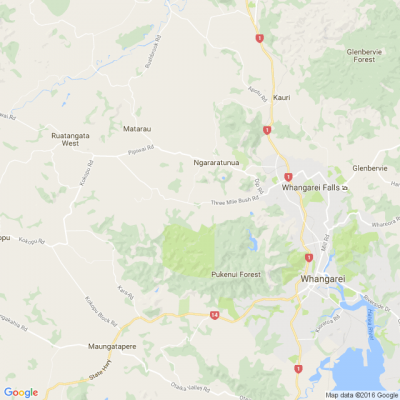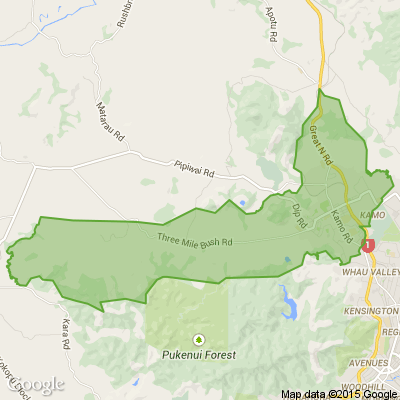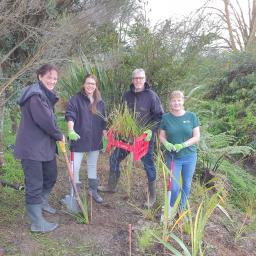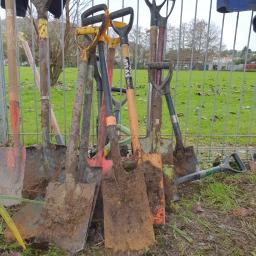Native Planting at Hikurangi Primary School
What an awesome day spent with Hikurangi Primary School on Wednesday 3rd July. We met some amazing kids and a very supportive and encouraging staff who allowed us to help plant almost 1000 native trees alongside the students at their school.
The casket company we use - Return to Sender, has been donating a tree for each casket sold since 2007 and as of June 2019, they have donated a total of 12,596 trees. A couple of years ago, they realised anyone could plant a tree - but wondered what did that actually achieve? Nothing if it isn’t educating the future caretakers of our land. In 2017, Return to Sender officially partnered with 'Trees for Survival'.
Trees for Survival is a charitable trust that delivers an educational environmental programme in schools. It sees students growing and planting native trees to restore natural habitats by helping landowners revegetate erosion-prone land, improve stream flow and water quality and increase biodiversity.
Once a month, Return to Sender donates money towards the cost of native plants to the Trees for Survival on behalf of the families who have chosen a Return to Sender casket. One casket = 1 tree donation.
The students involved in the TFS environmental education programme, receive locally sourced seedlings at the beginning of every year, nurturing them until ready for planting. Planting days consist of many different native plants; including Mānuka, kānuka, flax and tī kōuka (cabbage tree) that are suitable for the area that they will be planted.
Return to Sender supports schools in Whangarei, Auckland, Waikato, Bay of Plenty and Wellington. The Funeral Homes that provide the caskets are then invited to volunteer with Return to Sender, on planting days within their local areas.
Tī kōuka / cabbage tree: These are good colonising species, growing happily on bare ground or exposed places. Their strong root system helps stop soil erosion on steep slopes and because they tolerate wet soil, they are a useful species for planting along stream banks. The trees were also planted to mark trails, boundaries, urupā (cemeteries) and births, since they are generally long-lived
Mānuka & kānuka: These plants can act as an important tool for re-vegetating bare, eroded slopes. By creating shade and shelter from the wind, they provide an excellent nursery for other, slower growing native plants. Unlike many other native plants, mānuka/kahikātoa and kānuka are not usually eaten by browsing animals like sheep, cattle and goats. This is another reason that these plants are useful in restoration projects.
Harakeke/flax: These bushes will often support a large community of animals, providing shelter and an abundant food resource. Harakeke attracts native birds such as Tui, Bellbirds/ Korimako, Saddlebacks/Tīeke, short tailed bats/Pekapeka, geckos and several types of insects that enjoy nectar from its flower.
Again, we are blown away by how wonderful the staff and students were. Well done guys! Keep up the hard work!
Poll: As a customer, what do you think about automation?
The Press investigates the growing reliance on your unpaid labour.
Automation (or the “unpaid shift”) is often described as efficient ... but it tends to benefit employers more than consumers.
We want to know: What do you think about automation?
Are you for, or against?

-
9.3% For. Self-service is less frustrating and convenient.
-
43.5% I want to be able to choose.
-
47.2% Against. I want to deal with people.
Time to Tickle Your Thinker 🧠
If a zookeeper had 100 pairs of animals in her zoo, and two pairs of babies are born for each one of the original animals, then (sadly) 23 animals don’t survive, how many animals do you have left in total?
Do you think you know the answer? Simply 'Like' this post and we'll post the answer in the comments below at 2pm on the day!
Want to stop seeing these in your newsfeed? No worries! Simply head here and click once on the Following button.

WAITANGI WEEKEND MARKET – WHANGĀREI
Support the Onerahi Lions Fundraiser at the Waitangi Weekend Market this Saturday at Reyburn House Town Basin !











 Loading…
Loading…